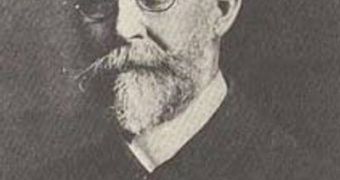The neurodegenerative disorder known as Huntington's disease (HD) is one of the most damaging ones out there, and there is currently no cure for it. Health experts say it's caused by mutations in the Huntingtin protein (HTT), which is generated by the Huntingtin gene, present in all humans. This gene contains a repeated section called a trinucleotide repeat. When its length increases over a certain threshold, it mutates into a different form of HTT, known as mHTT. This is the main element that triggers the formation of HD, whose symptoms usually set on between 33 and 45 years of age.
In a new scientific report, published online in the latest edition of the journal Nature Neuroscience, experts from the University of Illinois Chicago College of Medicine show that they have managed to identify exactly how mHTT acts on the nervous system, so as to cause the onset of the terrible disease. The main culprit was identified as the JNK3 enzyme, which is only activated by the mutated form of the Huntingtin protein. This enzyme acts directly on neurons, and the UIC researchers have also managed to identify all its effects on the brain cells.
“There are several puzzling aspects of this disease. First, the mutation is there from day one. How is it that people are born with a perfectly functioning nervous system, despite the mutation, but as they grow up into their 30s and 40s they start to develop these debilitating symptoms? We need to understand why the protein is bad at 40 but it wasn't bad at 4,” UIC College of Medicine Head of Anatomy and Cell Biology and Professor Scott Brady, also the co-principal investigator of the new paper, says.
“If you take a hit when you're very young, you still are making more and transporting more proteins in each neuron than you need. But as you get older and older, the neuron produces and transports less. Each hit diminishes the system further. Eventually, the neuron falls below the threshold needed to maintain cell health,” he adds.
“There is a common theme and a common Achilles heel of the neuron that underlies all these diseases. We've invented a word, dysferopathy, (from the Greek 'fero,' to carry or transport) for these adult-onset neurodegenerative diseases. All have disruption of the axonal transport system in common,” Brady shares about the similarities between Huntington's, Alzheimer's and other neurodegenerative diseases.

 14 DAY TRIAL //
14 DAY TRIAL //